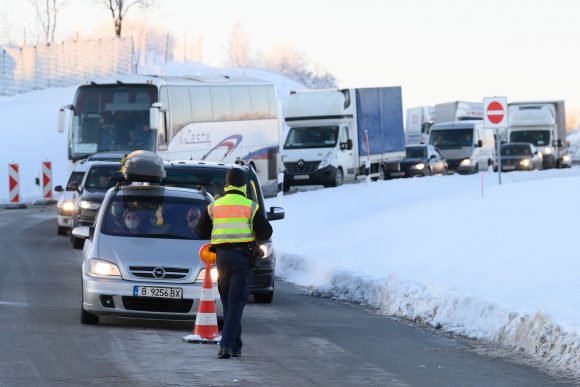Border delays in Germany could exasperate production problems in the country’s car factories and cause supply delays for new cars.
New checks have been put in place by the German government on its borders with Austria and Czech Republic after mutant Covid-19 strains were detected in the neighbouring countries.
The checks have led to queues of up to 12 miles on the approaches to Germany and freight is struggling to get through.
While the car factories are currently operating as normal, Volkswagen – the country’s biggest car producer – has warned the provisions it has made to keep production going can only be ‘effective for a certain period of time’, reported CNN.
Car factories operate on a ‘just in time’ process with parts arriving for cars at the moment they are needed. Delays at borders can cause serious disruption to this.
The additional border checks come on top of the semiconductor chip shortage that has already seen factories slowed down across the globe.
Car Dealer recently reported on the disruption after chips were snapped up by tech firms when the pandemic caused a global slowdown in car production last year.
Ford, VW and Audi all shut plants in January because of the issue, with the latter furloughing 10,000 staff at its Ingolstadt plant where it makes the Q2, A3, A4 and A5.
A VW spokesperson told CNN: ‘Should the border traffic situation get worse and result in even longer queues, it will no longer be possible to rule out production restrictions at Volkswagen.
‘We generally see it as the task of politicians to ensure free exchange of goods across national borders and create clear regulations in exceptional circumstances such as these.’

Checks at the German border are causing huge delays
BMW said its plants were currently running as normal, but it was closely ‘monitoring the situation’
The German automotive industry employs nearly 900,000 people in its manufacturing sector and in 2019 made 4.6m cars, a large number of which are exported around the world.
Germany implemented the tighter border controls on its frontiers this week in an effort to stem the spread of more contagious coronavirus variants.
The restrictions limit entry from those areas to German citizens and residents, lorry drivers, transport and health service staff and a few others, who have to register online and show a negative coronavirus test.
Interior minister Horst Seehofer admitted the new checks could cause some delays at the border and German police ‘will not just wave traffic through’.


































